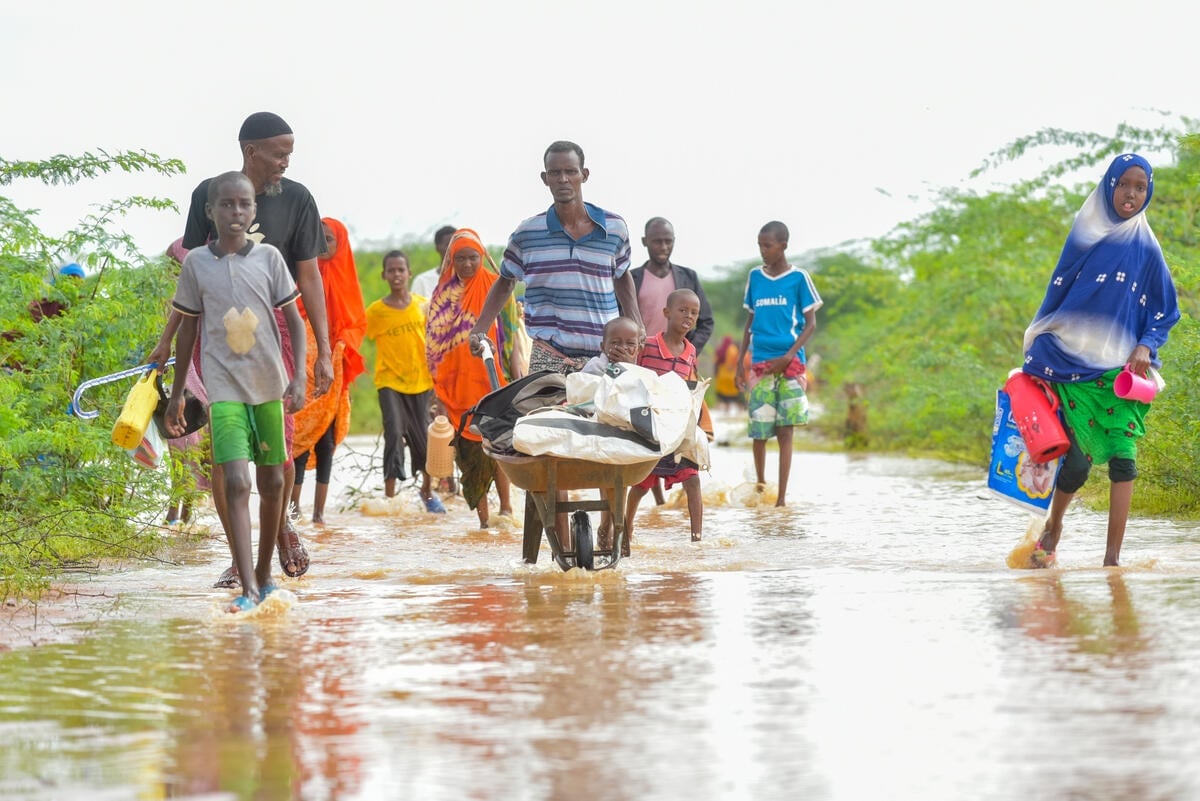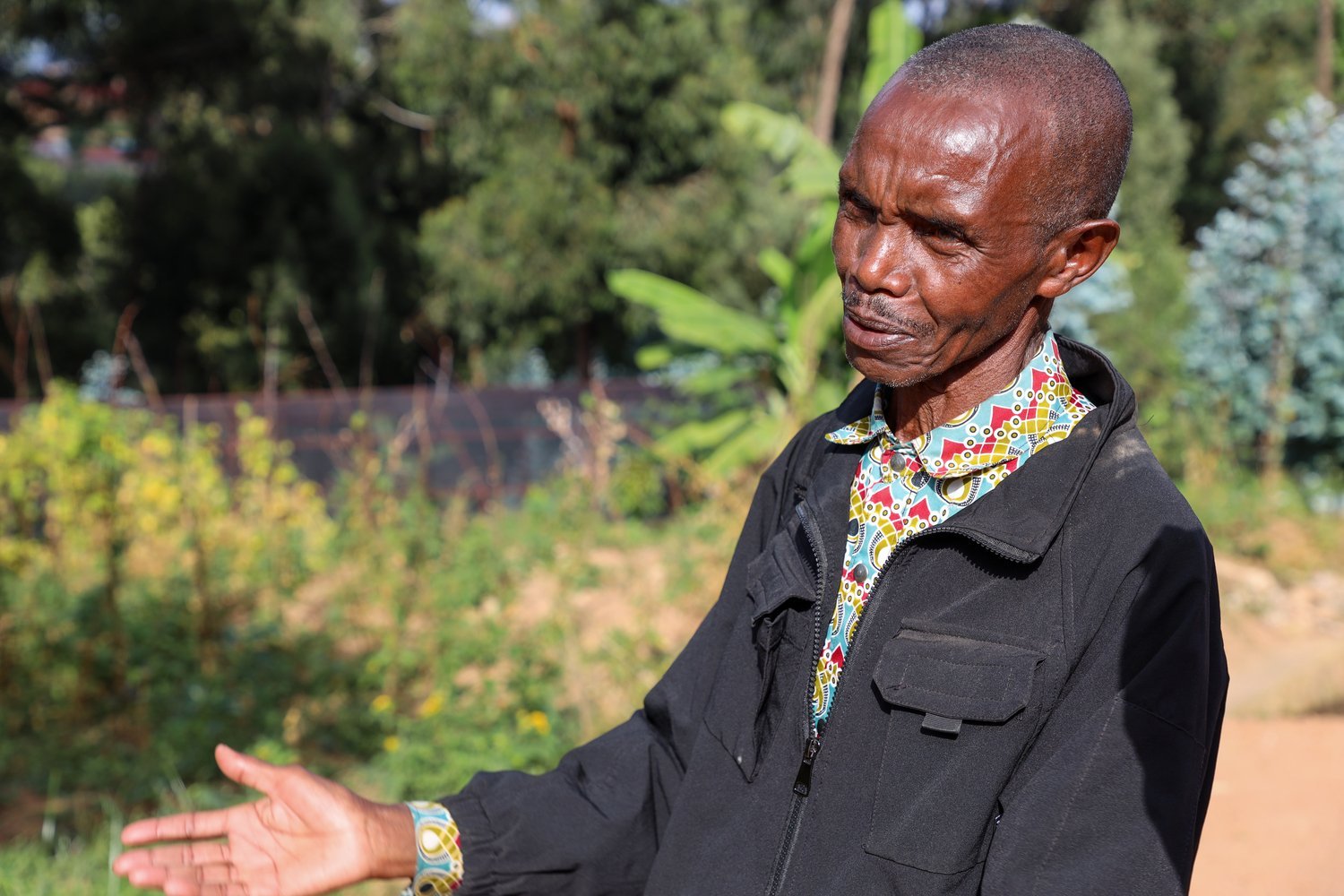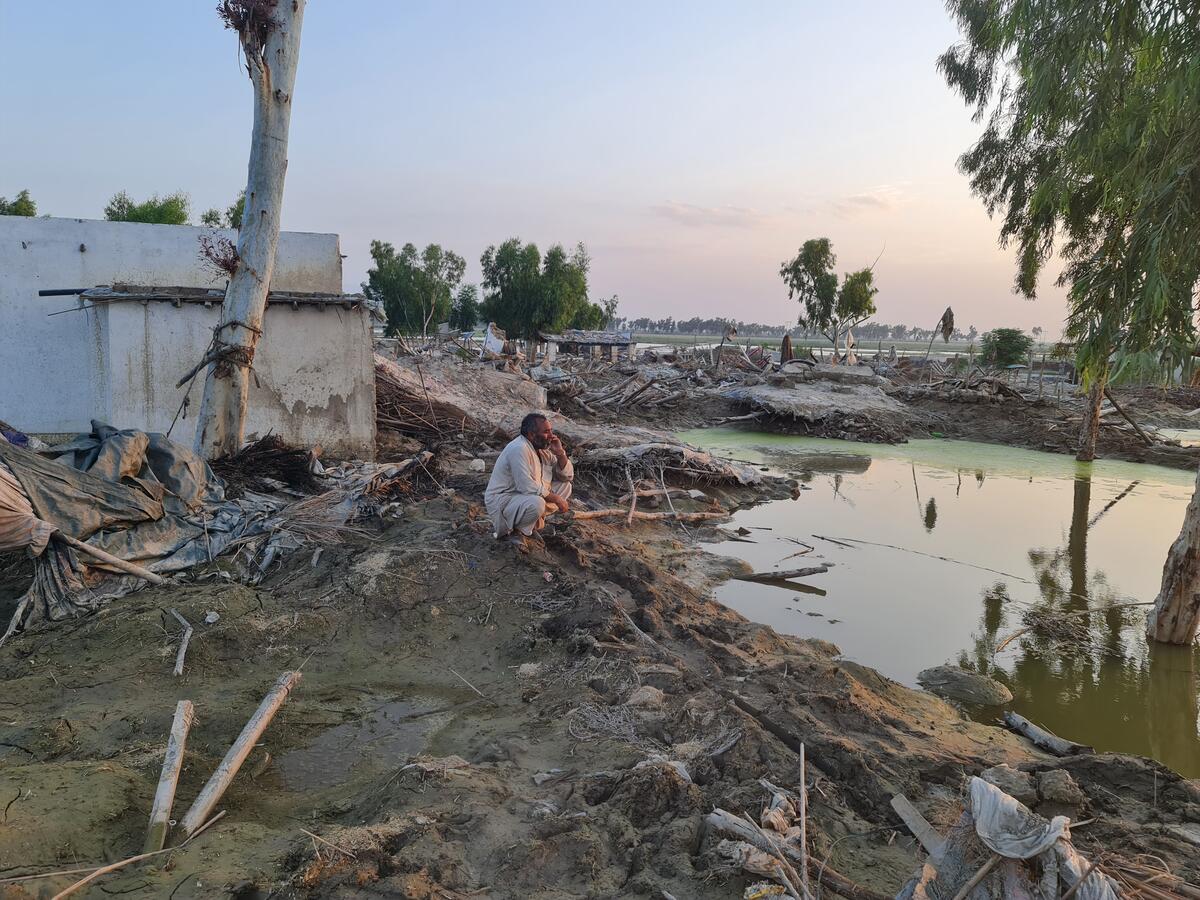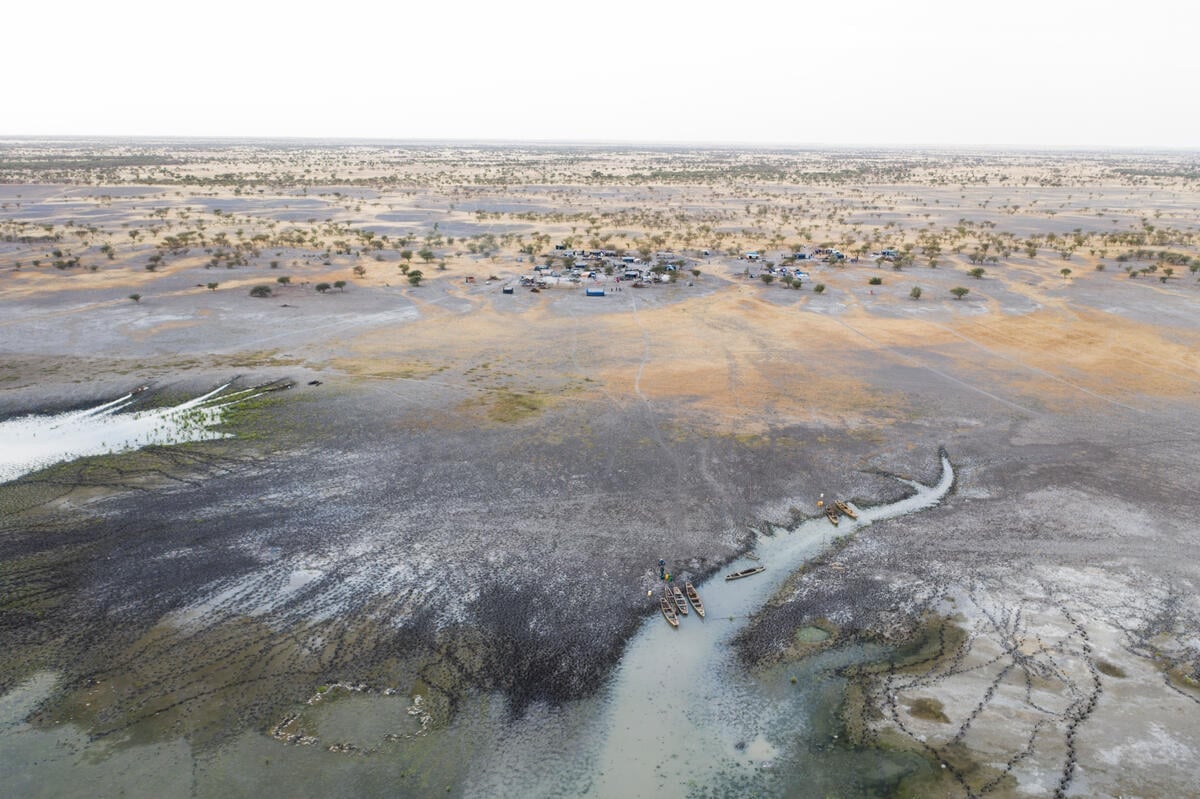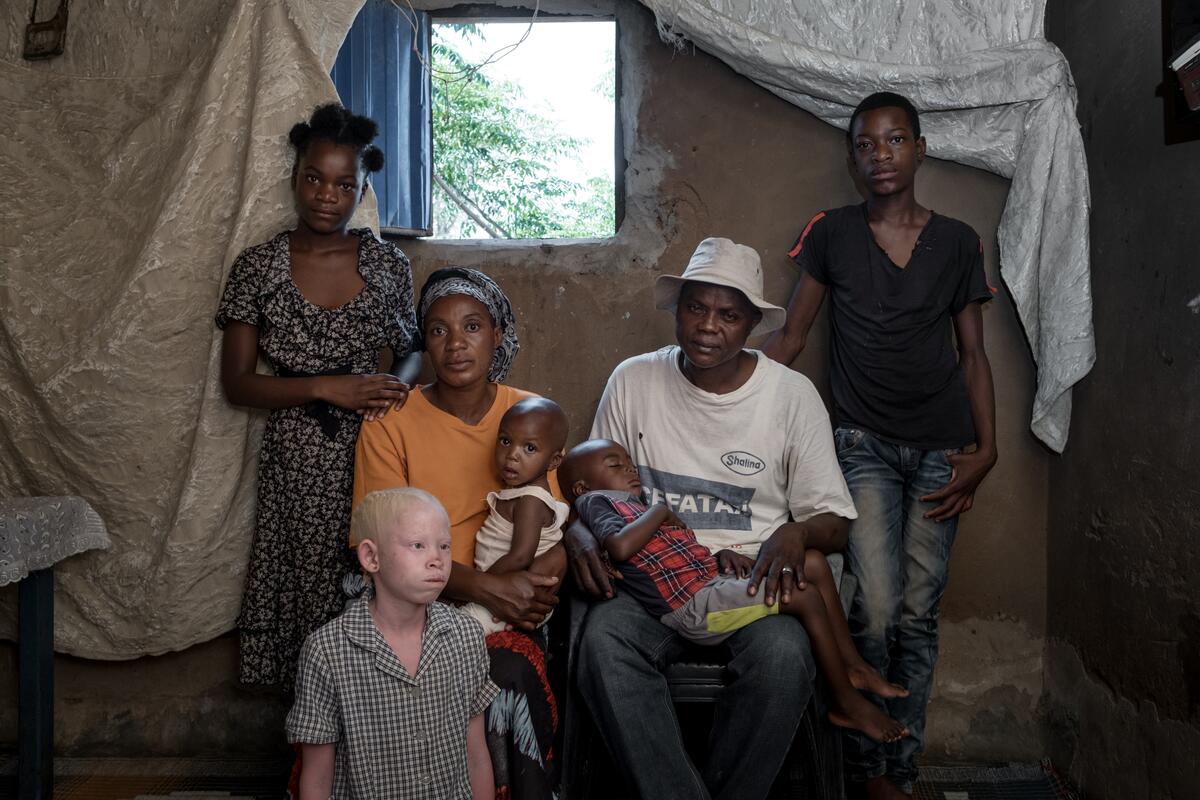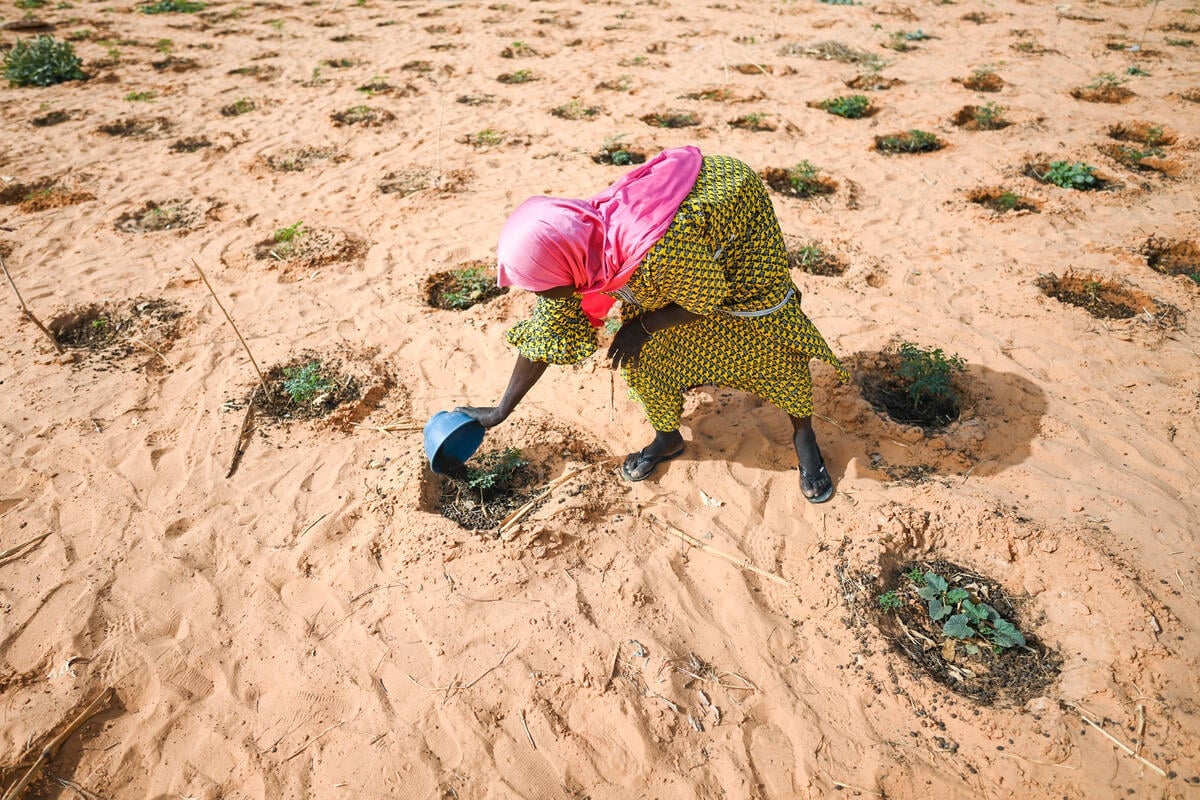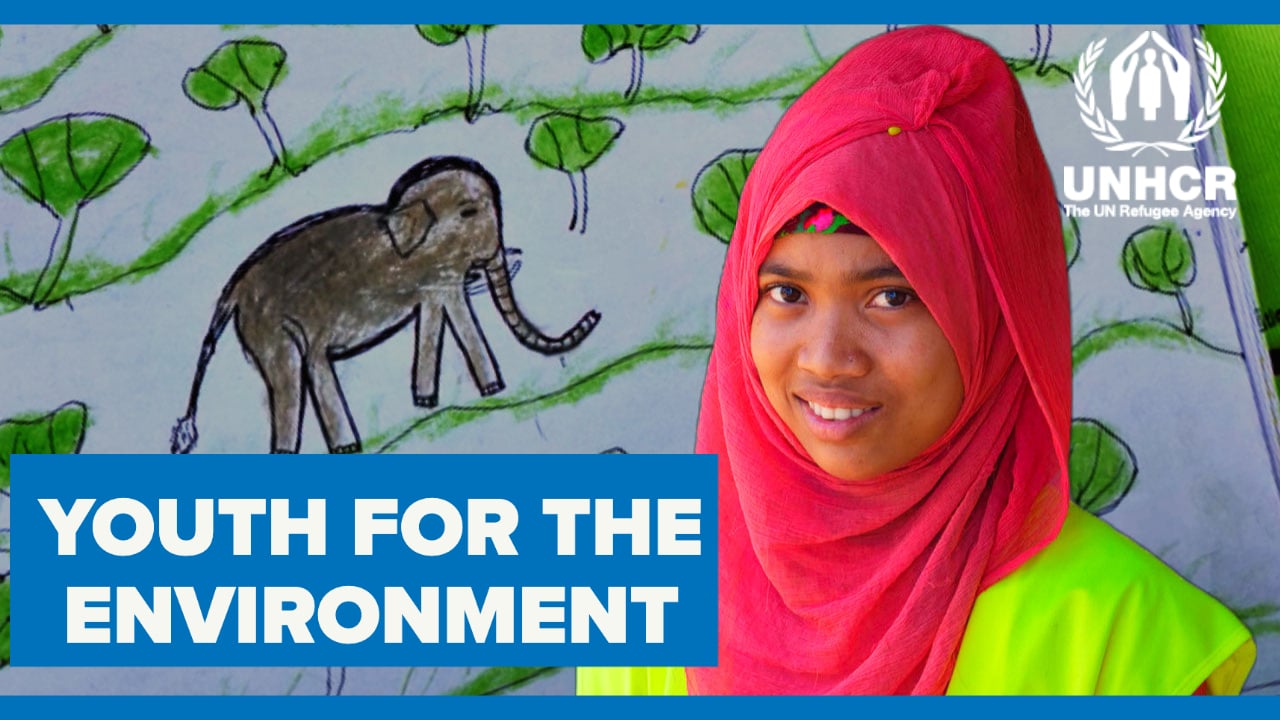UNHCR urges states to redefine response to climate-induced displacement
UNHCR urges states to redefine response to climate-induced displacement

OSLO, Norway, June 6 (UNHCR) - The world needs to urgently redefine its response to natural disasters and displacement, said UN High Commissioner for Refugees António Guterres today as he urged countries to adopt new measures to cope with climate-induced displacement within and across borders.
Guterres made his appeal in Oslo at the Nansen Conference on Climate Change and Displacement in the 21st Century, declaring the issue "the defining challenge of our times" and noting that "the international community has hitherto lacked the political will to establish effective mechanisms to reduce the pace of climate change."
The two-day meeting is the first global event to bring together eminent specialists to specifically explore the displacement dimension of climate change.
"There is increasing evidence to suggest that natural disasters are growing in frequency and intensity, and that this is linked to the longer-term process of climate change," said the High Commissioner, pointing to recent disasters in Japan, the Philippines and Pakistan. "At the same time, it has become increasingly clear that natural disasters and climate change cannot be regarded or addressed in isolation from the other global mega-trends that are conditioning the future of our planet and its people."
These trends - population growth, urbanization, water, food, and energy insecurity - will increasingly interact with each other and create the potential for competition and conflict over scarce natural resources. "As a result…" Guterres said, "…we are also likely to see growing numbers of people being displaced from one community, country and continent to another."
Guterres warned of slow onset disasters, such as drought and desertification, leading to "a tipping point at which people's lives and livelihoods come under such serious threat that they have no choice but to leave their homes." He further predicted that "natural disasters will uproot large numbers of people in a matter of hours, forcing them to flee for their lives in conditions that resemble refugee movements."
He emphasized, however, that much of the movement prompted by climate change will likely be within national borders. "Primary responsibility will therefore rest with the states concerned. I encourage those states to ensure that their responses are fully consistent with the Guiding Principles on Internal Displacement," he said, referring to the international agreement on the protection of internally displaced people (IDPs).
He also called on the countries which bear primary responsibility for climate change to establish "a massive programme of support to the most seriously affected countries, thereby reinforcing the resilience of their citizens and their ability to adapt to the process of climate change." He urged these countries to switch from the usual emergency-mode response to natural disasters: "The billions of dollars spent on relief in recent decades have evidently not led to the sustainable strengthening of national and local capacities."
Guterres also warned that not all climate change displacement will be internal and that people will increasingly be displaced across borders and may be unable to return home. Many of these people, he said, will not qualify for refugee status under the terms of the 1951 Refugee Convention.
To address this, the High Commissioner proposed the development of a global guiding framework for situations of cross-border displacement resulting from climate change and natural disasters. Such a framework should contain arrangements for temporary or interim protection for people who flee natural disasters. He also suggested that relevant existing treaties could be invoked to address the problem.
Guterres additionally called for action to address the plight of citizens of small island states whose lives, livelihoods, culture and identity are threatened by rising sea levels. "The international community has an obligation to support such states and their citizens, not only by means of preventive and mitigating measures, but also through orderly and equitable migration programmes for those at most serious risk and innovative legal frameworks for statehood to preserve national identity."
The Nansen Conference on Climate Change and Displacement in the 21st Century, which runs from June 6-7, is organized by Norway's Ministries of Environment and Foreign Affairs to mark the 150th anniversary of the birth of Fridtjof Nansen, the first "High Commissioner for Refugees" under the League of Nations.


